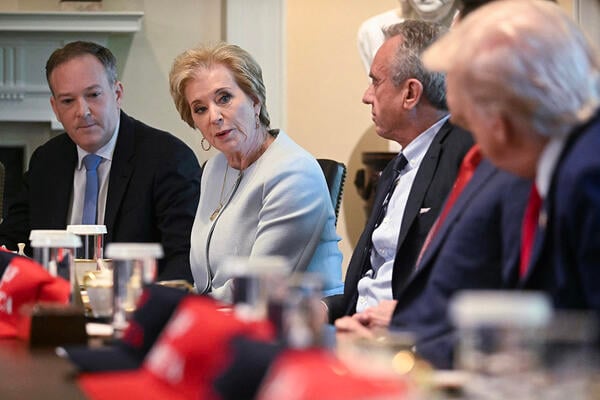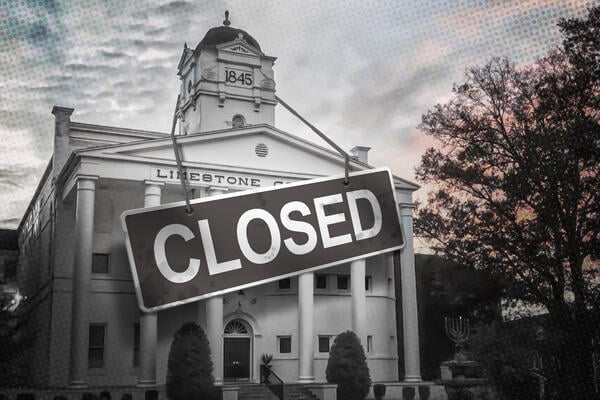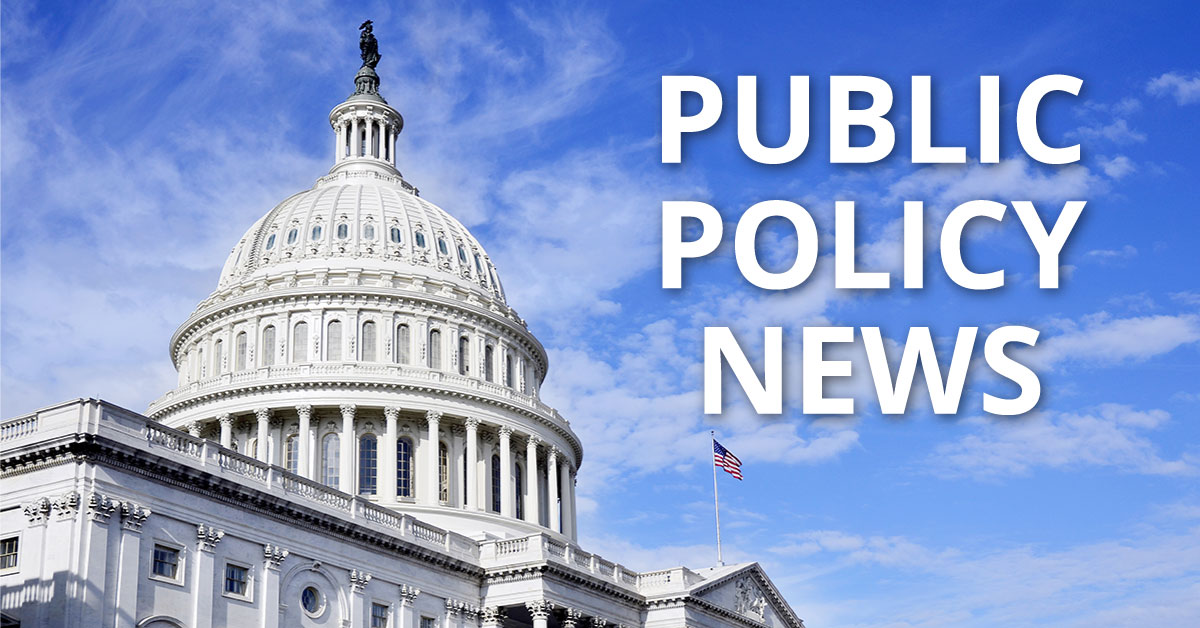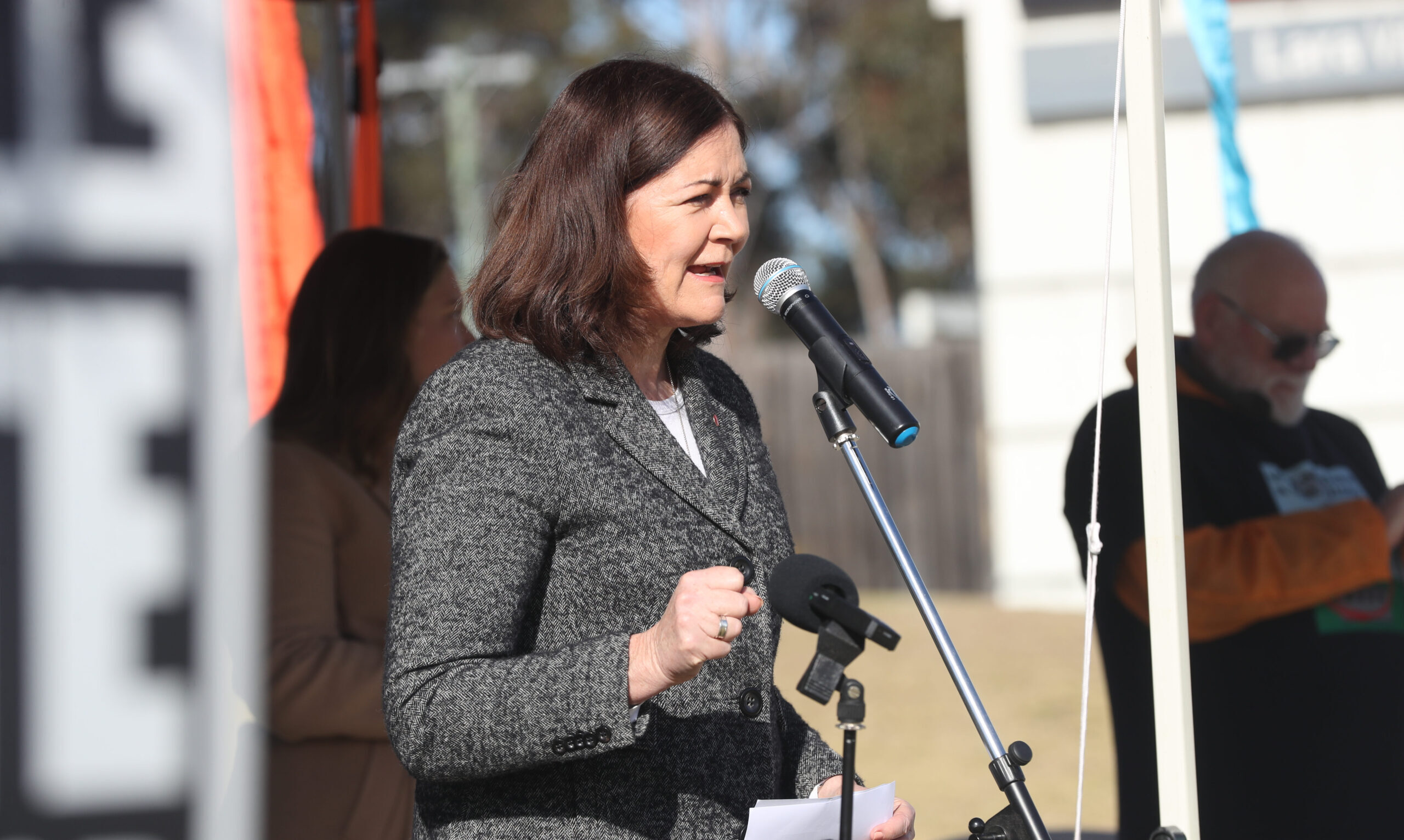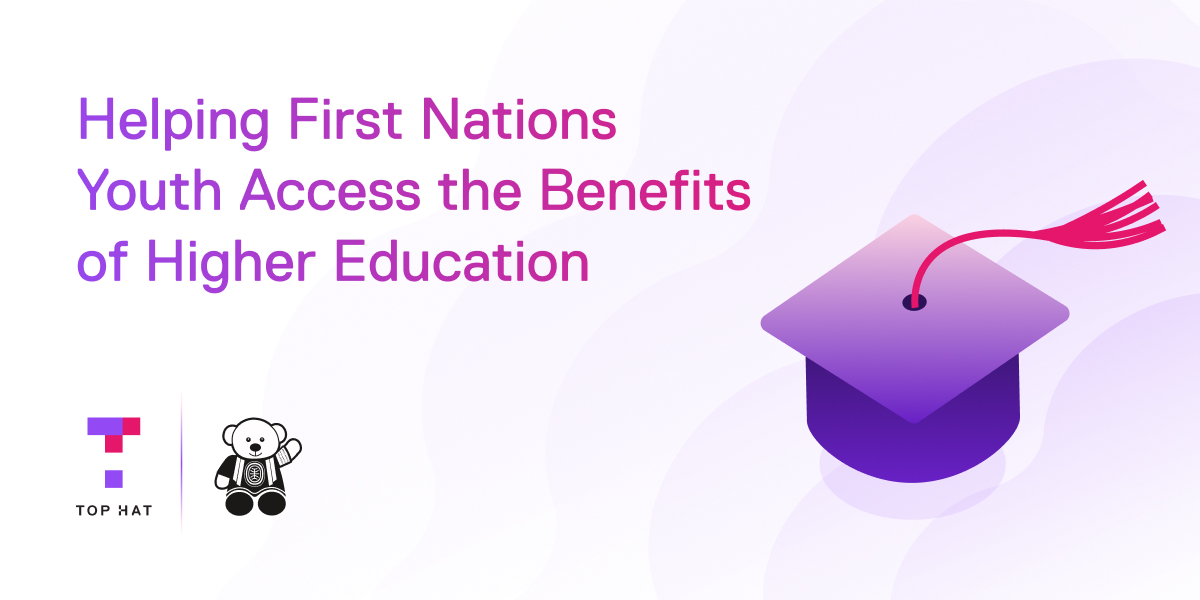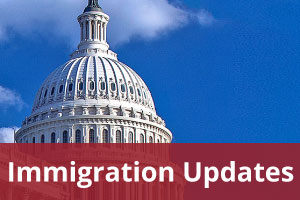Secretary McMahon said the Dear Colleague letter will “foster a competitive marketplace” for accreditors and the institutions they oversee.
Jim Watson/AFP/Getty Images
The Department of Education intends to accelerate the process for changing accreditors, a move announced in a Dear Colleague letter that builds on other recent changes to oversight.
Last week the Trump administration released a highly anticipated executive order to overhaul accreditation. That order took aim at accreditors who have diversity, equity and inclusion in their standards, threatening to revoke their recognition, and sought to make it easier for institutions to switch from one accrediting body to another and for new accreditors to enter the marketplace.
The Department of Education cast the Dear Colleague letter as an action to comply with that executive order and announced that ED had “lifted the Biden Administration’s moratorium on accepting and reviewing applications for initial recognition of potential new accreditors.”
The Trump administration revoked guidance from the Biden administration from 2022 that exerted more scrutiny over changing accreditors, which came after Florida’s Republican-led Legislature passed a bill that year requiring its public institutions to switch accreditors regularly. (The bill came after state officials clashed with the Southern Association of Colleges and Schools Commission on Colleges, which accredited all of Florida’s public institutions, over concerns of political influence.)
“We must foster a competitive marketplace both amongst accreditors and colleges and universities in order to lower college costs and refocus postsecondary education on improving academic and workforce outcomes for students and families,” U.S. Secretary of Education Linda McMahon said in a statement about the guidance. “President Trump’s Executive Order and our actions today will ensure this Department no longer stands as a gatekeeper to block aspiring innovators from becoming new accreditors nor will this Department unnecessarily micromanage an institution’s choice of accreditor.”
Thursday’s letter, signed by Deputy Under Secretary James P. Bergeron, emphasized that the U.S. Department of Education aims to expedite the process of changing accreditors by removing what ED called “unnecessary requirements” that officials argued stifle institutional innovation.
ED will no longer scrutinize reasons for changing accreditors, according to the letter.
“The law and regulation do not dictate a robust or onerous process for receiving the Department’s approval for a change in accrediting agencies or maintaining multiple accreditation,” Bergeron wrote in the Dear Colleague letter. “Therefore, consistent with statutory and regulatory obligations, the Department will conduct expeditious reviews of applications received except in rare cases where an institution lacks a reasonable cause for making a change.”
The new guidance noted that institutions can switch to accreditors for a variety of reasons, including better alignment with their religious mission, a change mandated by state law or because an accrediting body requires a university to adopt “discriminatory” DEI principles.
Additionally, Bergeron wrote, if the department “does not approve a change in accrediting agency within 30 days of the date of its receipt of a complete notice of this change and materials demonstrating reasonable cause, approval will be deemed to have been granted, unless the change or multiple accreditation is prohibited as described” in the Dear Colleague letter.
Some accreditors offered a positive response to the change.
The Middle States Commission on Higher Education, which recently launched its own effort to streamline the process of changing accreditors, welcomed the development in a statement.
“As an accreditor with institutions that have been stalled in the process, this guidance will have a positive impact on the work we have been doing with several institutions. We look forward to helping our institutions understand what this may mean for them and for us,” MSCHE president Heather Perfetti wrote. “We appreciate that there are well-defined restrictions that will not allow for institutions to change accreditors to avoid accountability with an existing accreditor.”
Thursday’s letter also prompted celebration in some conservative quarters.
The Defense of Freedom Institute, a conservative think tank, urged ED in February to revoke the Biden administration’s guidance on switching, saying that in doing so the department would “wipe away politically motivated and patently unlawful actions of the previous administration.”
They argued that doing so would create a more effective accreditation system. Following the release of the Dear Colleague letter Thursday, the organization thanked the Trump administration in a statement.
“The Defense of Freedom Institute applauds the Trump administration for taking bold, necessary action to restore integrity, accountability, and competition to our broken accreditation system. For too long, accreditors have leveraged their Title IV gatekeeper status to stifle innovation in American higher education and to require ideological litmus tests that undermine civil rights and academic freedom on campus,” DFI president and co-founder Bob Eitel wrote.
Critics, however, argue that making it easier to switch accreditors will have negative effects.
Wesley Whistle, project director for student success and affordability in the higher education initiative at New America, a left-leaning think tank, told Inside Higher Ed that the new process amounts to a rubber stamp for changing accreditors. He argued that allowing institutions to switch accreditors more easily will likely drive them toward accreditors with lower standards.
“What this Dear Colleague letter does is dilute that requirement [to demonstrate reasonable cause to switch accreditors], and undermines a critical safeguard that’s meant to ensure that institutions don’t escape oversight just because they don’t like scrutiny,” Whistle said.
Whistle also suggested the compressed timeline for ED approval within 30 days limits any actual oversight. Timing is compounded, he added, by the lack of personnel, given the job cuts at the department.
“This guarantees there will be no meaningful review. This isn’t about streamlining, it’s surrender. It’s the Wild West here: Do whatever you want, just say ‘mission’ and you can change accreditors,” he said.

